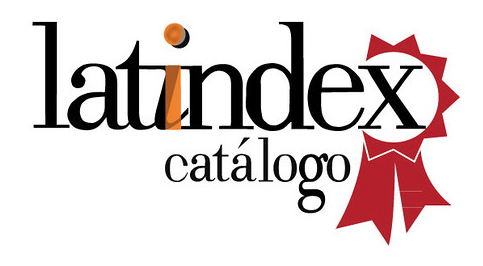Influence of class size and methodology on learning experience = Influencia del tamaño de clase y de la metodología en el aprendizaje
DOI: https://doi.org/10.20868/abe.2018.3.3835
Texto completo:
PDFResumen
Abstract
The aim of this paper is to present different implemented innovations in education focused on the specific course “Industrial Constructions” at Escuela Técnica Superior de Ingenieros Industriales (ETSII) Universidad Politécnica de Madrid (UPM), that for more than ten years have been adopted, in order to propose a more adequate framework for learning and evaluation. This paper reports on the outcomes of a research study to clarify the role of class size and identify other constraints to the success of innovative actions.
The research covers several years and it includes different number of students´ groups through that period. The course has been included in diverse educative programs over time, but also varied innovative actions have been implemented as well, including experiential learning with practical perspective and magisterial lessons approach, and experiential learning combined with flipped classroom and gamification, etc. The linear perspective of the research allows to compare different instances as well as the conclusions and feelings from teachers´ perspective in accordance. It is not claimed a fully rigorous statistical robustness in the comparison because there are many uncontrolled variables, therefore, it is highlighted that the comparison is a qualitative one, with high added value from the teacher’s perspective.
The analysis shows some expected results regarding the size of the groups but also other interesting results regarding motivation and students´ skills that can contribute to enhance teachers´ perspective in their selection of the best methodology.
Resumen
El objetivo de este artículo es presentar diferentes metodologías innovadoras en educación realizadas en el curso de “Construcciones Industriales” durante más de diez años en la Escuela Técnica Superior de Ingenieros Industriales (ETSII) de la Universidad Politécnica de Madrid, para proponer una estructura de aprendizaje y evaluación. Este estudio presenta los resultados de la investigación sobre la influencia del tamaño de clase e identificar otras limitaciones con el éxito de las acciones de innovación educativa.
En los diez años en los que se ha realizado esta investigación participan grupos de clase con diferentes números de estudiantes. Esta asignatura se ha impartido en diversos programas docentes y con diferentes metodologías, como son clase magistral y aprendizaje práctico de trabajo de grupo, y aprendizaje práctico con clase invertida y gamificación. La visión de la investigación permite comparar distintos casos así como las conclusiones conforme a las opiniones y puntos de vista de los profesores. No se trata de un estudio comparativo con un alto rigor estadístico debido al número de variables adicionales, por lo que se subraya que las conclusiones del estudio son cualitativas con un alto valor del enfoque del profesor.
El análisis muestra algunos resultados esperados respecto el tamaño de la clase, pero también otros resultados interesantes en cuanto a la motivación y competencias de los alumnos que pueden contribuir a mejorar el enfoque de los profesores en la selección de la mejor metodología.
Referencias
Ch. Greenhow, B. Robelia, “Informal learning and identity formation in online social networks”, Journal Learning, Media and Technology, vol 34, no. 2, pp. 119-140, 2009. Doi: 10.1080/17439880902923580
A. Kirkwood, L. Price, “Missing; evidence of a scholarly approach to teaching and learning with technology in higher education,” Journal Teaching in higher education, vol. 12, no. 3, pp. 327–339, 2013. Doi: 10.1080/13562517.2013.773419
K. Smith, “Building an innovation ecosystem”, Journal Process, culture and competencies, vol. 20, no. 4, pp. 219-224, 2006.
M. Borrego, J.E. Froyd, T.S. Hall, "Diffusion of engineering education innovations: A survey of awareness and adoption rates in US engineering departments", J. Eng. Educ. 99, pp. 185–207, 2010.
R.L. Cross, J. Singer, S. Colella, R.J. Thomas, Y. Silverstone, "The Organizational Network Fieldbook: Best Practices, Techniques and Exercises to Drive Organizational Innovation and Performance", John Wiley & Sons, 2010.
S. Singer, , K.A. Smith, "Discipline-Based Education Research: Understanding and Improving Learning in Undergraduate Science and Engineering", J. Eng. Educ. 102, pp. 468–471, 2013.
C. Henderson, A. Beach, N. Finkelstein, "Facilitating change in undergraduate STEM instructional practices: An analytic review of the literature2, J. Res. Sci. Teach. 48, pp. 952–984, 2011.
M. Borrego, C. Henderson, "Increasing the use of evidence-based teaching in STEM higher education: A comparison of eight change strategies", J. Eng. Educ. 103, pp. 220–252, 2014.
K. Edström, A. Kolmos, "PBL and CDIO: complementary models for engineering education development", Eur. J. Eng. Educ. 39, pp. 539–555, 2014. doi:10.1080/03043797.2014.895703
R. Klingebiel, C. Rammer, "Resource allocation strategy for innovation portfoliomanagement", Strateg. Manag. J. 35, pp. 246–268, 2014. doi:10.1002/smj.2107
B. Kerr, "The flipped classroom in engineering education: A survey of the research, in: Interactive Collaborative Learning (ICL)", 2015 International Conference on. pp. 815–818, 2015.
L. Rentzos, M. Doukas, D. Mavrikios, D. Mourtzis, G. Chryssolouris, "Integrating Manufacturing Education with Industrial Practice Using Teaching Factory Paradigm: A Construction Equipment Application", Procedia CIRP 17, pp. 189–194, 2014. doi:10.1016/J.PROCIR.2014.01.126
R. Eiris Pereira, M. Gheisari, "Site Visit Application in Construction Education: A Descriptive Study of Faculty Members", Int. J. Constr. Educ. Res. 1–17, 2017. doi:10.1080/15578771.2017.1375050
X. Canaleta, D. Vernet, L. Vicent, J.A.
Montero, "Master in Teacher Training: A real implementation of Active Learning", Comput. Human Behav. 31, pp. 651–658, 2014. doi:https://doi.org/10.1016/j.chb.2013.09.020
B. Malheiro, M. Silva, M.C. Ribeiro, P. Guedes, P.Ferreira, "The European Project Semester at ISEP: the challenge of educating global engineers", Eur. J. Eng. Educ. 40, pp. 328–346, 2015.
Enlaces refback
- No hay ningún enlace refback.
Copyright (c) 2021 Autor / BY-NC-ND

Este obra está bajo una licencia de Creative Commons Reconocimiento-NoComercial-SinObraDerivada 4.0 Internacional.













